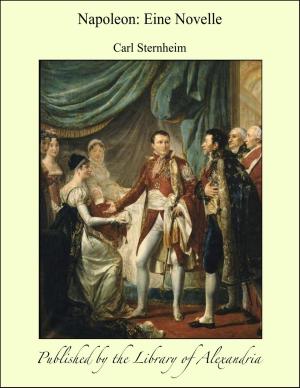The Rival Heirs Being The Third and Last Chronicle of Aescendune
Nonfiction, Religion & Spirituality, New Age, History, Fiction & Literature| Author: | Reverend Augustine David Crake | ISBN: | 9781465507402 |
| Publisher: | Library of Alexandria | Publication: | March 8, 2015 |
| Imprint: | Language: | English |
| Author: | Reverend Augustine David Crake |
| ISBN: | 9781465507402 |
| Publisher: | Library of Alexandria |
| Publication: | March 8, 2015 |
| Imprint: | |
| Language: | English |
This little volume, now presented to the indulgence of the reader, is the third of a series intended to illustrate the history and manners of our Anglo-Saxon forefathers, whom a great historian very appropriately names "The Old English:" it does not claim the merit of deep research, only of an earnest endeavour to be true to the facts, and in harmony with the tone, of the eventful period of "The Norman Conquest." The origin of these tales has been mentioned in the prefaces to the earlier volumes, but may be briefly repeated for those who have not seen the former "Chronicles." The writer was for many years the chaplain of a large school, and it was his desire to make the leisure hours of Sunday bright and happy, in the absence of the sports and pastimes of weekdays. The expedient which best solved the difficulty was the narration of original tales, embodying the most striking incidents in the history of the Church and of the nation, or descriptive of the lives of our Christian forefathers under circumstances of difficulty and trial. One series of these tales, of which the first was Aemilius, a tale of the Decian and Valerian persecutions, was based on the history of the Early Church; the second series, on early English history, and entitled "The Chronicles of Aescendune."
This little volume, now presented to the indulgence of the reader, is the third of a series intended to illustrate the history and manners of our Anglo-Saxon forefathers, whom a great historian very appropriately names "The Old English:" it does not claim the merit of deep research, only of an earnest endeavour to be true to the facts, and in harmony with the tone, of the eventful period of "The Norman Conquest." The origin of these tales has been mentioned in the prefaces to the earlier volumes, but may be briefly repeated for those who have not seen the former "Chronicles." The writer was for many years the chaplain of a large school, and it was his desire to make the leisure hours of Sunday bright and happy, in the absence of the sports and pastimes of weekdays. The expedient which best solved the difficulty was the narration of original tales, embodying the most striking incidents in the history of the Church and of the nation, or descriptive of the lives of our Christian forefathers under circumstances of difficulty and trial. One series of these tales, of which the first was Aemilius, a tale of the Decian and Valerian persecutions, was based on the history of the Early Church; the second series, on early English history, and entitled "The Chronicles of Aescendune."















